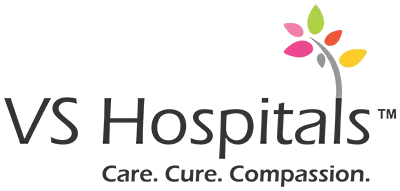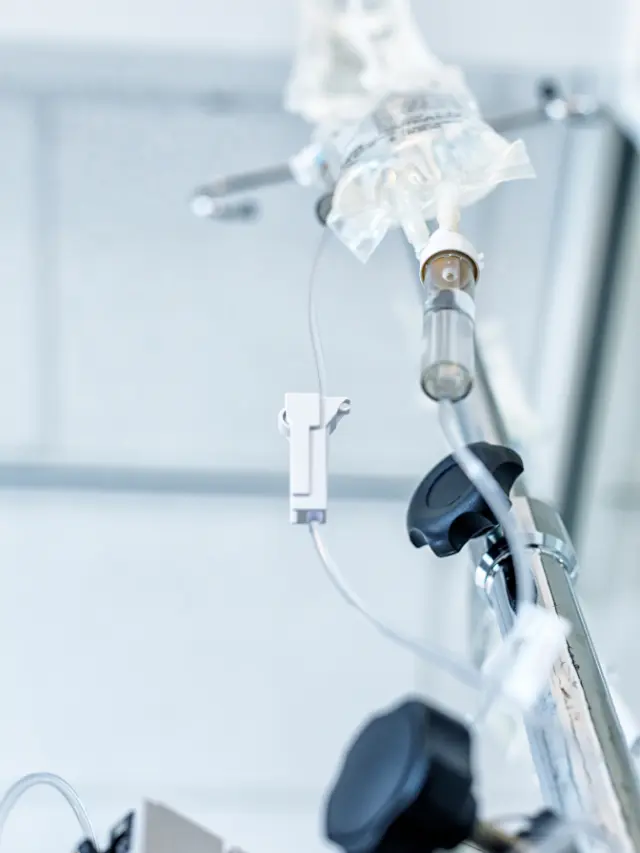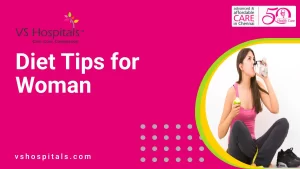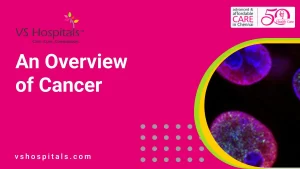Chemotherapy might weaken a patient’s immune system. Nutritious foods have to be consumed during chemotherapy diet because it leads the patients to lose weight during this treatment. An ideal diet during chemotherapy will help them manage these issues, where it should be followed before, during, and after chemo.
What has to be done during chemotherapy diet?
If you or your loved ones are going through chemotherapy, then you will need to understand what has to be given during chemotherapy diet to ensure maximum success of the treatment.
A good diet during chemotherapy
- Provide sufficient calories for maintaining weight
- Optimize the immune system
- Provide overall strength
- Improve tolerance towards the chemo treatment
Besides this, we should also understand that many patients face some side-effects of chemotherapy. The degree may vary and not everyone faces all the side effects such as nausea, diarrhea, constipation, extreme tiredness, and loss of weight whereas some patients may not even feel the side effects.
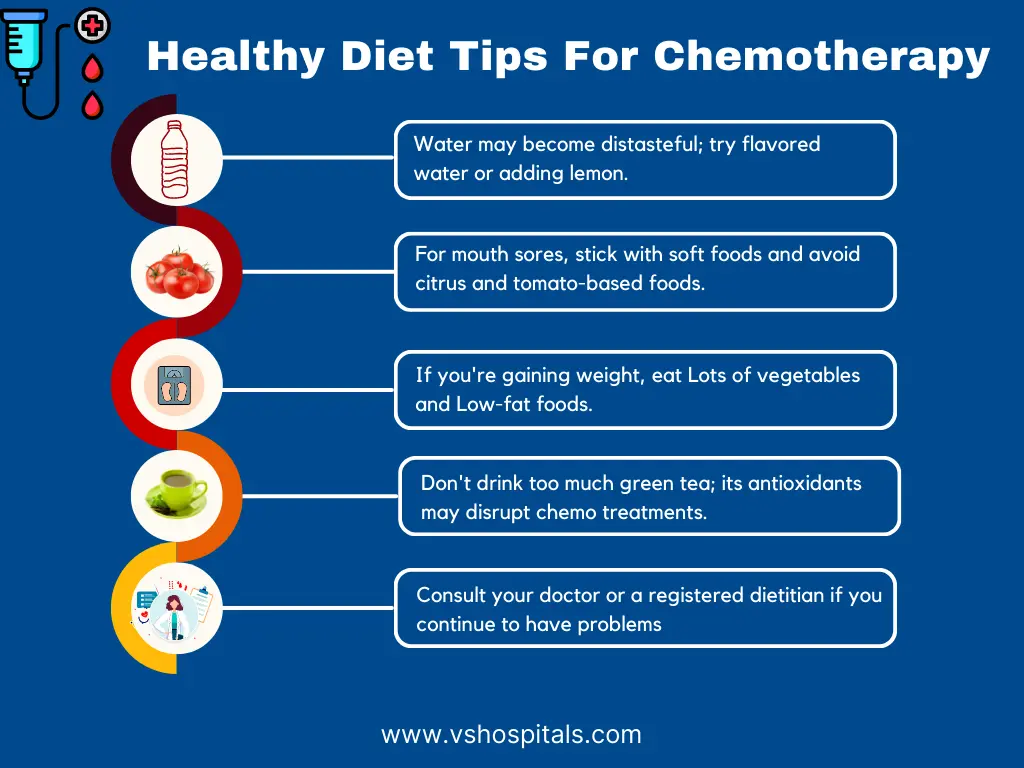
Diet during chemotherapy
Here we can look at what to include during chemotherapy diet to ensure the maximum success of the treatment and a speedy recovery.
Proteins
If you are a non-vegetarian, include lean meats like fish, chicken, and eggs. Avoid processed meats like sausages and red meats during chemotherapy diet.
If you are a vegetarian, you can include pulses like masoor dal, tur dal, green gram, etc.
Include nuts, soy foods, milk, and milk products because your body needs to absorb these proteins while you consume them. Excessive stress can also have a direct impact on the pancreas causing inflammation as it affects the absorption of proteins simultaneously.
Limit your intake of coffee or tea to 2 -3 cups per day because consuming this diet during chemotherapy can also impact the absorption of protein in your body.
Avoid overeating, or eating too often and eat after a gap of two or three hours, instead of eating on an hourly basis. You can include salads, and fruits like papaya, mangoes, kiwi, and pineapple before your meal as it increases the production of digestive enzymes and helps in better absorption of proteins.
Carbohydrates
Carbohydrates are the main energy source of the human body especially during chemotherapy diet because it gives the body the fuel it needs to perform physical activity and proper organ function.
You can include fruits, vegetables, beans, and whole grains as they supply needed minerals, vitamins, fibre, and phytonutrients to the body’s cells to promote better health.
Fats
Fats play a major role during chemotherapy diet, especially in providing nutrition to the body. The body requires it to store energy, insulate body tissues, and also transport some vitamin types through the blood.
When you consider the effects of fat on your heart besides keeping the cholesterol level in control, choose monounsaturated or polyunsaturated fats more than trans or saturated fats.
Monounsaturated fats are found mainly in vegetable oils such as olive, canola, and peanut oils, and Polyunsaturated fats are found mainly in vegetable oils like sunflower, safflower, corn, and flaxseed.
Saturated fats in meat, poultry, cheese, and butter can raise cholesterol and increase the risk of heart disease whereas trans fat is found in snack food, baked goods, and certain animal products. So, avoid these fats as much as you can during chemotherapy diet.
Antioxidants
Antioxidants should be included in diet during chemotherapy as they include vitamin A, C and E, carotenoids, minerals, selenium, zinc, and some enzymes to absorb and attach to free radicals preventing them from attacking the normal cells.
Plant-based foods are the best sources of diet during chemotherapy especially fruits, vegetables, cocoa, nuts, whole grains, seeds, herbs, and spices as they are typically high in fibre, low in cholesterol, and saturated fat.
Cancer prevention agents kill free extremists, preventing them from harming sound cells. They incorporate specific nutrients and minerals, for example,
- vitamin A
- L-ascorbic acid
- vitamin E
- selenium
- zinc
Individuals can consume more cell reinforcements by eating different products of the soil. Specialists don’t normally suggest taking huge portions of cancer prevention agent supplements during chemotherapy.
Read also Avoiding and Preventing Cancer.
